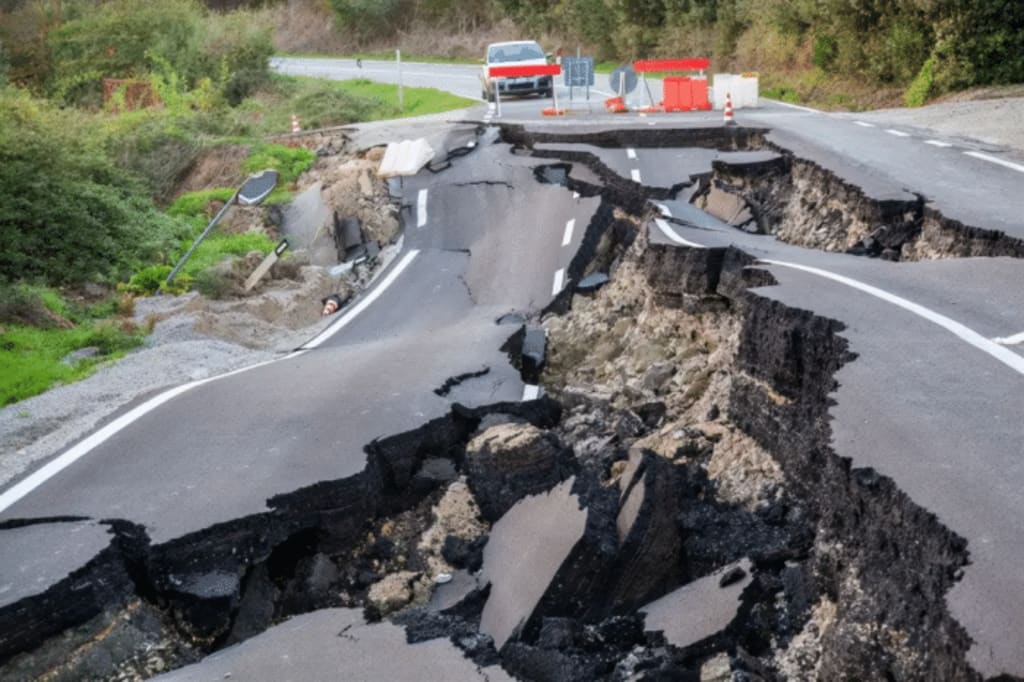Fish frantically leap out of the water after a 6.5 magnitude earthquake in Taiwan - why do earthquakes happen so often?
Taiwan earthquake of magnitude 6.5

A 6.5 magnitude earthquake in Taiwan Province was felt in many parts of Fujian.
Yes, another earthquake. There was an earthquake in Sichuan some time ago and people are still in a tight spot to rescue them. Now, on the other side of the strait, an earthquake has struck. The quake was felt strongly and was evident to many people.
For example, some netizens noticed that the swimming pool on the 24th floor of the Kaohsiung Hotel shook violently as if it was about to collapse. Fortunately, no one was in the pool, so there were no casualties. It is not hard to imagine that if someone had been swimming in it at the time, I am afraid there would have been unpredictable consequences.
There was also a shocking scene in Kaohsiung's Love River, with countless schools of fish leaping out of the water. This led many netizens to believe that this was a precursor to an earthquake. However, the truth is that the fish swarmed out of the water after the earthquake, so it was not the so-called precursor to the earthquake.
The fish were frightened by the earthquake, so they jumped out of the water frantically, which also shows that the earthquake is a great threat to the fish as well.
How strong was the earthquake? It is understood that many places in Fujian (Xiamen, Quanzhou, and Fuzhou) felt the quake significantly. Some netizens in Fujian said that the lights at home shook.
Although the magnitude of this earthquake was not as high as the Luding earthquake in Sichuan some time ago, it was also a strong earthquake, and both were shallow source earthquakes, so the quake would have been relatively stronger and more threatening to people.
Both Sichuan and Taiwan provinces are earthquake-prone areas. Sichuan is located in the Himalayan-Mediterranean seismic zone, while Taiwan Province is located in the Pacific Rim seismic zone, which is the reason why earthquakes are so frequent in both areas. There are similarities and differences between the two earthquakes, but without exception, they are both bad.
Earthquakes can wreak havoc on people, and the results can vary due to geological, architectural, and soil factors. If a building has a high seismic rating, the building is less likely to collapse. Likewise, other factors can affect the disaster of an earthquake.
Let's look at the aftermath of the 6.8 magnitude earthquake in Luding, Sichuan. In terms of the earthquake, it was located in a high mountain valley and the village had a huge drop in elevation. That's why landslides and mudslides occurred more frequently after the earthquake. In addition, some houses collapsed.
On the contrary, the earthquake in Taiwan province has just occurred and the exact casualties have not been counted yet, but from the magnitude and historical data, the damage was less than in Luting, Sichuan.
Taiwan province is an earthquake-prone area, so the buildings are of strong seismic rating and the environment is not as mountainous and basin-like as Sichuan, so the area affected will be smaller.
The information shows that 5 million earthquakes occur worldwide every year.
Earthquakes occur so frequently that many people see them as nature's revenge on mankind, a punishment for the destruction of nature and the earth. Such questions cannot be answered.
But from a scientific point of view, earthquakes are a normal natural phenomenon, the result of the movement of the earth's plates. But most earthquakes occur in uninhabited areas, which we don't usually report and few people know about.
The Earth's plates are in constant motion and they can crush and collide with each other, which can generate huge amounts of energy. When the energy rushes out of the ground, it is an earthquake. In those areas where the plates meet, the probability of earthquakes will be greater. After all, plate collisions and crushes will be more frequent.
Given the frequency of earthquakes, is it possible to predict when they will occur and reduce the number of casualties?
In reality, earthquakes are difficult to predict because their location is fortuitous and their timing is random. China, one of the countries with the most earthquakes, is so vast that it is even more difficult to accurately predict where and when earthquakes will occur.
Of course, big earthquakes don't just happen out of nowhere. Most are relatively small and the damage is more likely. But every earthquake is like a scar drawn on the map, keeping people on their toes. Technology has benefited mankind, and having advanced technology can always help minimize damage in the face of frequent disasters.
Yes, scientists are now also working on developing instruments to accurately predict earthquakes, find their regularity, and then avoid their effects. Nowadays, some earthquakes can be predicted. Before an earthquake occurs, residents receive escape messages warning them that the quake will arrive in a few seconds and prepare for emergencies in advance. This is a sign of technological advancement for the benefit of mankind.
We also need more advanced means. If one day, mankind can predict all disasters, then human life will become safer.






Comments
There are no comments for this story
Be the first to respond and start the conversation.